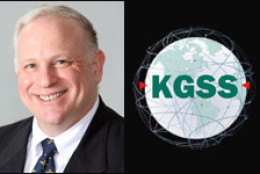Cybersecurity
-
The Science and Technology Directorate is giving more than 50 companies a chance to show off their DHS-funded cyber innovations. The cyber showcase is the first of its kinds from S&T.
December 10, 2014 -
Adam Firestone, president and general manager at Kaspersky Government Security Solutions, will discuss how to make your agency's IT infrastructure more secure. December 9, 2014
December 09, 2014 -
For the first time, the Homeland Security Department is showcasing its cybersecurity research and development for a much wider audience. The Science and Technology Directorate's goal is to move these cyber projects out of the lab and into the commercial marketplace. Doug Maughan, director of the cybersecurity division within DHS' Science and Technology directorate, tells Federal News Radio Executive Editor Jason Miller what DHS wants to accomplish with next week's cyber R&D showcase in Washington.
December 09, 2014 -
Adm. Mike Rogers, commander of the U.S. Cyber Command and director of the National Security Agency, told the House Intelligence Committee that China, and perhaps other countries, will be able to shut down and damage critical infrastructure in the United States by 2025. Richard Stiennon is executive editor of the Security Current blog and founder of IT Harvest. On In Depth with Francis Rose, he said only one part of Rogers' comment seems off the mark.
December 03, 2014 -
Defense Department doctrine makes clear that cyberspace is a military domain, just like air, land, space and sea. But the Navy's top cyber officer said the procurement system hasn't yet caught onto that notion.
December 03, 2014 -
The threat of a major cyberattack could expose the sensitive information of millions of Americans - whether breach happens at a retailer like Target or at a government agency like the Postal Service. Two former DHS officials offer their advice on making industry and government better prepared for the next breach.
December 02, 2014 -
What could be the last set of the mostly dreaded annual Federal Information Security Management Act (FISMA) reports are arriving from agency inspector generals.
December 01, 2014 -
The Department of Defense recently released the results of a 45-day study, detailing three new approaches to help military services and agencies ensure the security of the commercial clouds they use.
December 01, 2014 -
The Federal Risk Authorization and Management Program will send a draft baseline standard for FISMA high systems around the government for comment in the next month. Matt Goodrich, the acting director of the FedRAMP program, said the high-impact baseline would apply only to non-classified technology systems as characterized under the Federal Information Security Management Act.
November 28, 2014 -
Demand is finally pushing the cloud services cybersecurity program known as FedRAMP to develop standards for high impact systems. The Federal Risk Authorization and Management Program will send a draft baseline standard for FISMA high systems around the government for comment in the next month. Matt Goodrich, acting director of the FedRAMP program, tells Federal News Radio Executive Editor Jason Miller about the changes that are coming.
November 26, 2014 -
Booz Allen Hamilton Senior Vice President Brad Medairy, will discuss how Continuous Diagnostics and Mitigation (CDM) can help your agency meet its cybersecurity challenges. November 25, 2014
November 25, 2014 -
Scott Jones and Stephanie Adams with IQ Solutions, join host John Gilroy to discuss how agencies can use data to make their websites more responsive to customers. November 25, 2014
November 25, 2014 -
The Veterans Affairs Department failed its 16th cybersecurity audit in a row, so it still can't properly protect the private health data of veterans. The VA Inspector General sees about 6,000 cyber weaknesses in the agency's IT networks, and says it falls short of complying with the Federal Information Security Management Act.
November 25, 2014 -
Simon Szykman, chief technology for a wide ranging discussion of the IT challenges facing federal agencies. November 24, 2014
November 24, 2014 -
Non-federal organizations and contractors may have sensitive federal information on their computers, but there are no consistent rules on how to keep that information secure. The treatment of Controlled Unclassified Information is the focus of a new set of recommendations. Ron Ross is a National Institute of Standards and Technology fellow. He is the lead author of the new guide, and joined Tom Temin on the Federal Drive to explain more.
November 24, 2014











